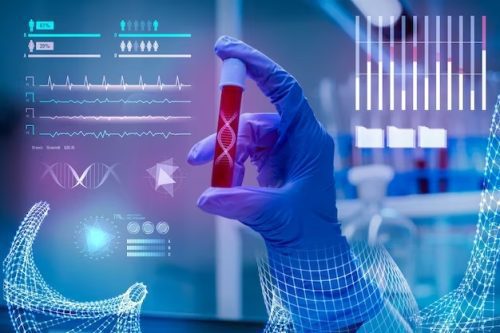Advanced Pharmacovigilance: Ensuring Drug Safety in Clinical Research
Advanced Pharmacovigilance, Drug Safety Clinical Research, Pharmacovigilance Systems, Adverse Drug Reactions, Clinical Trials, Pharmacovigilance Plans
Virtual (Google Meet)
Self Paced
Moderate
3 Months
1
About
Pharmacovigilance is the science and activities relating to the detection, assessment, understanding, and prevention of adverse effects or any other drug-related problems. It plays a crucial role in ensuring that medicines are safe and effective, by monitoring the effects of pharmaceuticals after they have been licensed for use. This field involves the collection and analysis of data from patients and healthcare providers to identify new information about hazards associated with medicines and prevent harm to patients. Key components of pharmacovigilance include adverse drug reaction reporting, safety signal detection, risk management, and communication. It aims to improve patient care and safety, contribute to the assessment of benefit, harm, effectiveness, and risk of medicines, and promote the safe, rational, and more effective use of medicines.
Aim
This program aims to provide participants with an in-depth understanding of pharmacovigilance principles, practices, and regulatory requirements in the context of clinical research. Participants will learn how to effectively monitor and evaluate drug safety data, detect adverse events, and contribute to patient safety throughout the drug development lifecycle.
Short Courses Objectives
- Understand the fundamental principles and concepts of pharmacovigilance in clinical research.
- Learn the regulatory requirements and guidelines governing pharmacovigilance activities.
- Gain knowledge of adverse event reporting and management, including signal detection, causality assessment, and risk-benefit evaluation.
- Develop skills in pharmacovigilance data collection, analysis, and reporting using standardized tools and databases.
- Understand the role of pharmacovigilance in post-marketing surveillance and risk management of medicinal products.
Short Courses Structure
Week 1: Introduction to Pharmacovigilance
- Overview of pharmacovigilance and its significance in clinical research
- Historical background and evolution of pharmacovigilance practices
Week 2: Pharmacovigilance Regulatory Framework
- International regulations and guidelines governing pharmacovigilance
- Role of regulatory authorities and their expectations for compliance
Week 3: Adverse Event Reporting and Signal Detection
- Adverse event classification, coding, and reporting requirements
- Signal detection methods and tools for identifying safety concerns
Week 4: Pharmacovigilance Databases and Systems
- Overview of pharmacovigilance databases (e.g., VigiBase) and their use
- Case management systems and electronic reporting platforms
Week 5: Risk Assessment and Benefit-Risk Evaluation
- Principles of risk assessment and benefit-risk evaluation in pharmacovigilance
- Decision-making processes for regulatory actions and risk management plans
Week 6: Safety Data Exchange and Collaboration
- International safety data exchange programs and initiatives
- Collaborative pharmacovigilance networks and their benefits
Week 7: Pharmacovigilance Audits and Inspections
- Preparing for pharmacovigilance audits and regulatory inspections
- Best practices for maintaining compliance and inspection readiness
Week 8: Pharmacovigilance in Clinical Trials
- Adverse event reporting in clinical trials and safety monitoring practices
- Investigator responsibilities and sponsor obligations in pharmacovigilance
Week 9: Pharmacovigilance in Post-Marketing Surveillance
- Post-marketing safety studies and real-world data collection
- Risk management strategies and pharmacovigilance in post-approval phase
Week 10: Signal Management and Risk Communication
- Signal management processes and assessment of emerging safety concerns
- Effective risk communication to healthcare professionals and the public
Week 11: Pharmacovigilance Quality Management
- Quality management systems and pharmacovigilance quality indicators
- Ensuring quality and continuous improvement in pharmacovigilance activities
Week 12: Pharmacovigilance Future Trends and Closing Remarks
- Emerging trends and technologies in pharmacovigilance
- Recapitulation of key concepts and closing remarks
Participant’s Eligibility
Graduates, Post Graduates, Research Scholars, Academicians, Industry Professionals of Pharmaceutical, Clinical Research Organizations, Healthcare Institutions
Short Courses Outcomes
- Comprehensive understanding of pharmacovigilance principles and practices in clinical research.
- Knowledge of regulatory requirements and guidelines governing pharmacovigilance.
- Proficiency in adverse event reporting, signal detection, and risk-benefit evaluation.
- Skills in pharmacovigilance data collection, analysis, and reporting.
- Competence in post-marketing surveillance and risk management of medicinal products.
Fee Structure
We are excited to announce that we now accept payments in over 20 global currencies, in addition to USD. Check out our list to see if your preferred currency is supported. Enjoy the convenience and flexibility of paying in your local currency!
List of CurrenciesBatches
Certificate
Enter the Hall of Fame!
Take your research to the next level!
Achieve excellence and solidify your reputation among the elite!
Related Courses

Artificial Intelligence for …

AI Applications in Pharmacy: …

SQL & Power BI Program: …

Data Visualization using …
Recent Feedbacks In Other Workshops
The course was more theoretical than practical.
nothing

